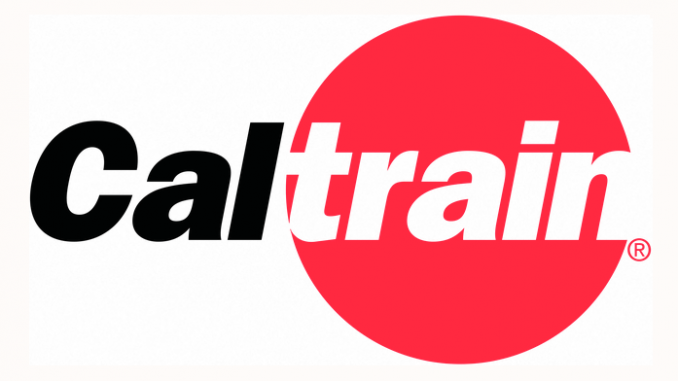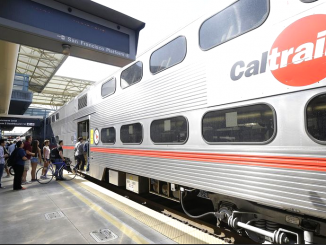
BY EMILY MIBACH
Daily Post Staff Writer
An eighth-of-a-cent sales tax that would bring $100 million a year to Caltrain would win on the November ballot if there is no opposition campaign, according to a poll of likely voters.
If everything goes Caltrain’s way, the tax would be approved by 69.8% of likely voters polled, EMC Research pollster Ruth Bernstein told a subcommittee of the Caltrain board on Wednesday (June 24).
This would include the tax having a privately funded campaign that points out that expanding Caltrain services would take many cars off Highway 101, Interstate 280 and El Camino Real. The campaign would also highlight that Caltrain could begin to operate at more of a BART-like frequency, making it more convenient to take the train, if it has its own revenue source.
However, support for the tax drops to 58.8% if there is an opposition campaign that argues that the area can’t afford the tax because of the COVID-19 crisis, questions the health and safety of public transportation and points out that tech workers are moving to telecommuting.
Sales tax measures such as this one must be approved by two-thirds, or 66.7%, of voters in Santa Clara, San Mateo and San Francisco counties.
For this tax to get on the ballot, it must be approved by the boards of supervisors in all three counties and the transit agencies in each county. So far, only SamTrans and San Mateo County’s supervisors have approved the measure. The rest are supposed to vote on giving Caltrain permission to go forward with the measure next month. Caltrain’s board will then have to decide before Aug. 7 whether to put the measure on the ballot.
The tax would give $100 million a year to Caltrain, which has a $155.7 million operating budget. Of that, $106 million comes from fares and $29.9 million from the three counties. The $100 million would replace the $29.9 million, resulting in about $70 million in additional revenue.
Caltrain has said it would use the $70 million to add more trains in each direction.




One other reason voters will reject the Caltrain tax: the outrageous $460,000 salary of Jim Hartnett, the CEO. He got hired with no experience in the industry other than sitting on a board of directors. He didn’t meet the job application’s requirements. It was all political. That kind of cronyism will no doubt turn off the voters.
i’d pay 10 cents to keep all those extra cars off the road and not be stuck in 1.5 hours of traffic for a 30 minute commute. (Or be the one on the train beating the highway parking lot). Not to mention not hear a loud 8ss train every hour. The electric ones cna’t come soon enough
Rachel, you can pay as much as you want but it’s not going to reduce traffic. We’ve approved $140 billion in taxes in the past 10 years and congestion has only gone up. Caltrain hasn’t said exactly what they’ll do with the $100 million they’ll get from this tax. About $20-25 million will replace funding Caltrain gets from the three counties. The rest is a windfall. No use for that additional money has been declared. Funds for the electric train have already been determined, so this money has nothing to do with that. If you want grade separations, that’s up to the cities. Caltrain has washed its hands of that. I figure the remaining $80-85 million every year will go into an enlarged bureaucracy but no real improvement in service. If you want to reduce highway congestion, require the big tech firms to have their employees work from home. Throwing more money at government solutions hasn’t worked before, and I don’t see how it will will going forward. If you don’t believe me, ask Caltrain for a budget showing how they’ll use the $100 million.